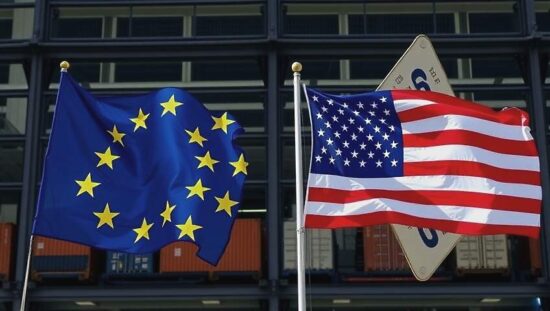The EU struggles to find a strong common response to the US tariffs imposed by President Donald Trump. As expected, the EU lacks the unity required to take a firm stance. The interests of the EU countries differ significantly, making it difficult to find a common ground.
France, Germany and Spain are in favor of using the Anti-Coercion Instrument (ACI) to threaten a complete shutdown of trade with the US. While this would have severe consequences for both the US and the EU, the latter heavily relies on US liquefied gas. The EU’s dependency on the US extends to other sectors, particularly in the digital and internet sphere. Boycotting Microsoft, Google, Amazon and other US tech giants would be detrimental to the EU’s economy, as their digital sovereignty is underdeveloped.
The French and Spanish finance ministers are pushing for the use of the ACI, with Spain’s Minister for Economic and Digital Transformation, Carlos Cuerpo, stating, “The Anti-Coercion Instrument is at our disposal if we deem it necessary. We must assess the use of all available instruments. That is clear. We must not rule out anything.”
However, this approach faces resistance from other EU countries. During a preliminary vote among EU trade and economic ministers, only 20% supported considering the use of the ACI. Even agreeing on a list of goods to be subject to retaliatory tariffs is challenging. Initially, the EU proposed imposing tariffs on American whiskey, but Italy and Ireland opposed it due to fears of retaliation from the US. Trump has threatened to impose 200% tariffs on wine, whiskey and spirits exported by the EU to the US.
A compromise was reached on imposing tariffs on US eggs, symbolizing the EU’s lack of action. The final list will be published today. US President Trump also rejected the proposal by EU Commission President von der Leyen to completely eliminate reciprocal tariffs. Instead, Trump intends to negotiate bilateral agreements with individual EU countries, which could signal the end of the EU. Italian Prime Minister Giorgia Meloni is expected in Washington next week.





